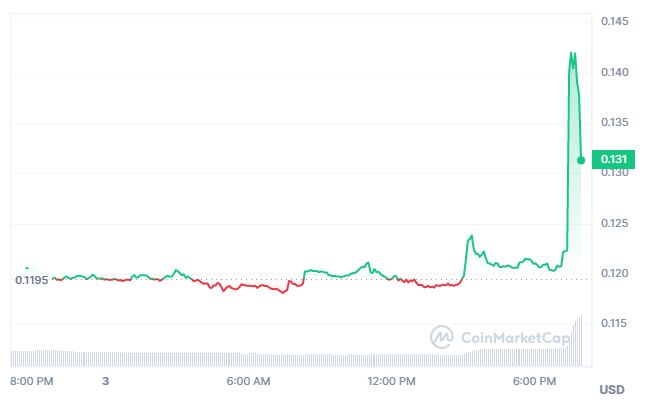
[ad_1]

- VGX surges 20% post-30% token burn.
- 52 million VGX tokens were sent to a burn address.
- The burn event comes as Voyager manoeuvres its Chapter 11 bankruptcy.
In a surprising turn of events, the native token of Voyager Digital, Voyager Token (VGX), witnessed a remarkable surge in its price, gaining 20% in value, following the transfer of 52 million tokens to a burn address.
The VGX token price had however started going down, at press time as seen in the chart below.
 VGX token price chart
VGX token price chart
30% of VGX token supply bunt
On-chain data from Etherscan shows that the wallet in question is linked to Voyager and was named “Voyager 1.” It had remained dormant for 225 days.
This wallet suddenly came to life, initiating a test transaction of 123.45 tokens before proceeding to transfer a larger batch valued at $7.3 million.
This substantial transfer was directed towards a burn address, a cryptocurrency wallet where tokens are rendered inaccessible, essentially eliminating them from circulation.
Voyager’s troubled past
Voyager Digital’s recent history has been marked by turbulence, with the company filing for bankruptcy following the collapse of FTX, a cryptocurrency exchange that was in discussions to acquire Voyager before its abrupt implosion. The repercussions of FTX’s troubles extended across the cryptocurrency market, leading to a widespread downturn.
It remains unclear why Voyager decided to send such a significant portion of VGX tokens to a burn address. However, this move could have multiple implications in the crypto space.
Token burns are often employed to reduce the total supply of a cryptocurrency, creating a sense of scarcity and, in turn, potentially bolstering the value of the remaining tokens in circulation. The market’s response to this event was notably positive, with VGX witnessing a 20% price increase, reflecting investor optimism regarding the potential value appreciation due to the reduced supply.
Voyager Digital had earlier announced that it intended to liquidate assets in relation to its ongoing financial difficulties and its strategy to manage assets and liabilities within the context of its bankruptcy proceedings.
[ad_2]
Source link